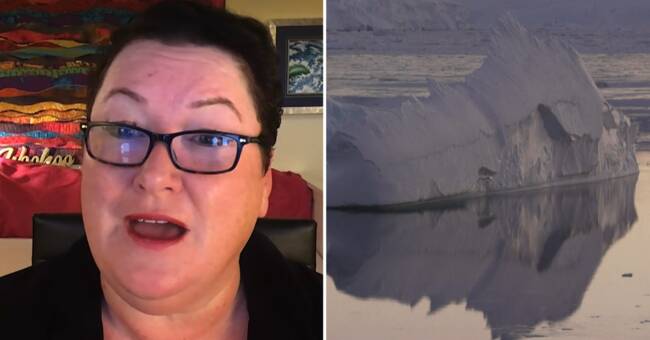The sea around Antarctica is mostly so inhospitable that it is extremely difficult to make measurements there.
But new remote-controlled robots can periodically dive into the sea to collect samples and make it possible to measure what is happening.
Similar robots are found in almost all oceans, but the new ones in Antarctica measure not only heat but also, among other things, the sea's PH value.
Warmer at 4,000 meters depth
The measurements show that the sea has become warmer, all the way down to a depth of 4,000 meters.
The robots see that the PH value drops, all the time, year by year.
And that the sea emits more carbon dioxide than previously thought.
This is what happens when what Joellen Russel calls "poop and dead carcasses" rises to the surface.
Then stored carbon dioxide is released from the depths of the sea.
What has sunk to the bottom for millennia is rising.
Can be solved
The sea has been our salvation.
It has acted as a carbon sink that has been able to receive excess heat and carbon dioxide emissions.
It is usually called blue coal, carbon taken up by animals and plants in the oceans.
It has been preserved on the seabed for thousands of years, which is longer than the time coal is stored in, for example, the rainforest.
The concern now is that the oceans are starting to emit large amounts of carbon dioxide.
- We can solve this, says Joellen Russell, it just requires a lot more work on our part.
- We must adjust our economy, towards more electricity and towards less fossil fuels.
Otherwise, we are heading towards a "burn-it-all" scenario.
"Very exciting"
Joellen Russell tells with arms and laughter and sometimes with tear-filled eyes what her research shows.
She was born in northernmost Canada, lives in the desert state of Arizona in the United States, but researches the seas around Antarctica.
And it's serious, what she and her team have found.
- It is very exciting for us researchers, because we have never before been able to document this in the same way as this new technology does, says Joellen Russell.

